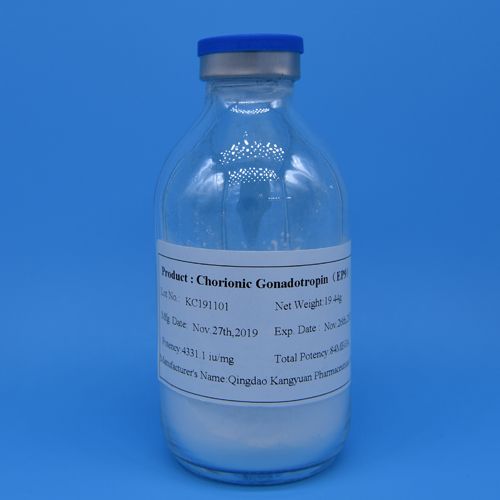Human chorionic gonadotropin (HCG), a glycoprotein hormone secreted by
placental syncytiotrophoblast cells, is found in pregnant women's blood, urine,
colostrum, amniotic fluid and fetus.

On the 6th day after fertilization, the trophoblast layer of the fertilized
egg was formed and HCG was secreted. After implantation, HCG was detected in
maternal blood with specific -HCG antiserum. HCG secretion increases very
quickly in the early gestation, and reaches the peak at 8 ~ 10 weeks of
gestation, and then decreases rapidly after 1-2 weeks of gestation, and the
serum HCG concentration in the third trimester is only 10% of the peak, and
continues until delivery. If no placenta remains after delivery, it will
disappear within 2 weeks after delivery.
HCG is the only placental hormone that does not increase with the increase
of placental weight. After secretion, it directly enters maternal blood and
hardly enters fetal blood circulation. HCG can be excreted into the urine
through the pregnant woman's blood circulation, and the serum HCG concentration
is slightly higher than that of the urine, and the relationship is parallel.